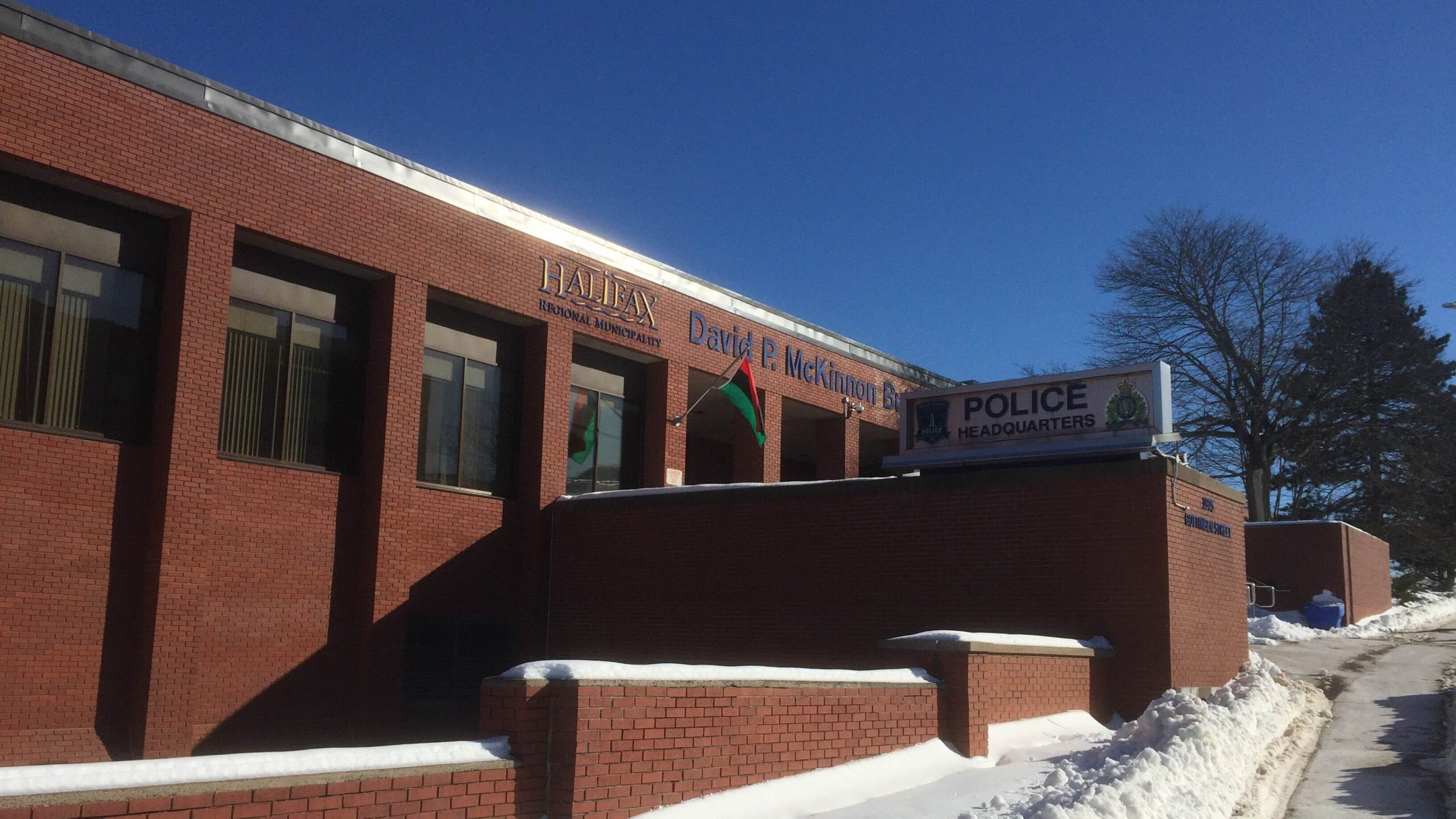Halifax police board approves budget increase, despite public protest
Public opposition, unclear report not enough to stop budget hike from reaching council

caption
Halifax Regional Police headquarters on Gottingen Street in Halifax, in a file photo taken on Feb. 1.The proposed Halifax Regional Police budget is moving forward.
Halifax’s police board recommended a 2.3 per cent increase to the police force’s budget at its meeting on Monday.
This means that if regional council’s budget committee approves, the police force will receive an additional $2.066 million, bringing its operating budget for 2022/23 to $90,876,900. The funds would be used to bring in 26 new officers, as well as 10 new civilian jobs.
This action did not come without protest. More than 20 people spoke against the budget increase at the board’s very first virtual public meeting. Related stories
Many of those who spoke against the increase appeared in light of the Jan. 17 report on defunding the police, written following George Floyd’s murder in Minneapolis, Minn., at the hands of police officers in that U.S. city in May 2020.
Among them was Kate MacDonald, who wanted to know how giving the police more money would actually make them more effective.
“In my opinion, this is not a good investment,” she said. “This literally would negate the work that’s been done by the ‘Defund the Police’ committee and all of the recommendations within that report.”
MacDonald was also dubious about how the money would help fix issues of racial discrimination that the department has faced. For example, an independent report in 2019 found that in Halifax, black men were up to six times more likely to be randomly street checked by police than white men.
“How will two million dollars make HRP more culturally competent and less racist?” she added. “How do we know this isn’t an investment in more violence, as trends show that it actually is?”
Other suggestions from the speakers included reallocating the requested funds to social development in Halifax Regional Municipality.
Among them was criminologist Jamie Livingston, who said that spending money to increase the size of a police force has a marginal impact on crime levels.
“The way forward for enhancing public safety and health is not by expanding police powers or increasing the size of our police force,” he said.
“A much stronger case can be made for committing the two million dollars to upstream social development and community-building programs that address inequitable social conditions.”
Livingston also referred to the municipality’s public safety strategy, which emphasizes that a “focus on building communities where everyone is safe to live, work, learn and play” can help reduce the risk of future crimes.
“What is the justification for, and human cost of investing two million dollars into something with marginal returns on investment, instead of investing it in a range of social programs, services and supports that we know to be effective for preventing crime?” he added.
However, perhaps the meeting’s most consistent trend was confusion surrounding the budget’s details.
Commissioner Harry Critchley, a co-author of the defunding report, was confused when Halifax Regional Municipality chief financial officer Jerry Blackwood told him the cost of providing raises to the 26 proposed officers was not accounted for in the proposed budget. Commissioner Yemi Akindoju also agreed that the budget ought to be more detailed.
There were even speakers who did not oppose the proposed budget who were dissatisfied by the lack of detail. Retired RCMP officer Gary Grant said that $90 million was a great police budget, but with far too few details of how it would be spent.
“I think that the citizens need to know where the money is allocated in detail, including what is not reported here or is reported in other city budgets,” he said.
Grant was disappointed by the omission of details from the report, such as fleet maintenance, fuel, technology, facility rentals and insurance.
He was also confused by why the force wants to hire more officers when, according to the defunding report, the municipality already has a rate of 209 officers to 100,000 people — higher than the national average of 183.
“That’s not right,” Grant added. “There’s so much that isn’t there that I don’t know how you could make a proper decision.”
But in the end, the vote to increase the regional police budget passed four to three.
Those who voted for the increase were Lisa Blackburn, Becky Kent, Anthony Thomas and Yemi Akindoju.
Those who voted against were Harry Critchley, Lindell Smith and Carole McDougall.
Whether the budget is approved will not be known until Feb. 23, with regional council’s budget committee getting the last word.
About the author

Josh Neufeldt
The resident esports enthusiast of King's journalism. 4th year with an affinity for gaming, movies and food.
